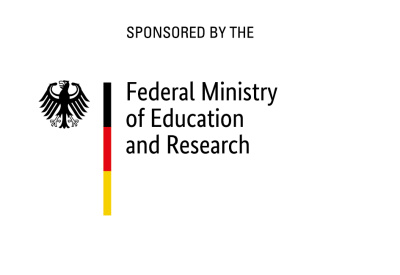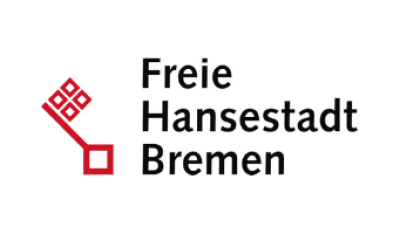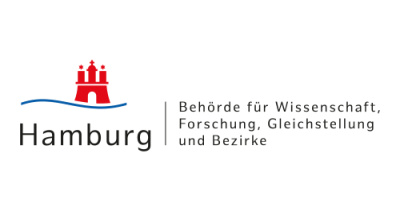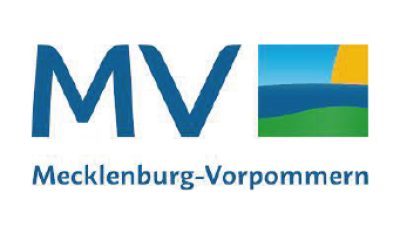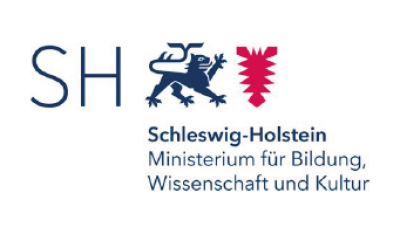CoastalFutures will provide extensive support for young scientists by training 8 doctoral students (PhD), numerous post-doctoral students (PD) and by training students in the context of scientific theses. Due to the inter- and transdisciplinary orientation of the project, the young scientists will be trained in complementary ways of thinking and working. The joint work on superordinate questions of coastal research represents a considerable added value in the promotion of young scientists. The project thus makes a direct contribution to the goal of Capacity Building in the DAM.
The young scientists can also benefit from further established PhD seminars and seminars on key qualifications as well as capacity building measures at partner institutions and are actively involved in science communication.
Capacity Building - personnel
| Name, Surname | Position | Institute | WPs | Expertise | Objectives |
|---|---|---|---|---|---|
| Benkort, Déborah | PostDoc | HEREON | Contributing mainly to WP2, WP3, WP4, WP5 and WP6 | Marine ecosystem modelling, Individual Based models | Objectives: Develop a fully end to end model framework (NEMO-ECOSMO-E2E-OSMOSE). Investigate impact of diverse futur scenarios on the ecosystem dynamic. Benefit for Stakeholders: Provide model outputs (phytoplankton, zooplankton, nutrients and fishes distributions) which will support sustanable management decisions. |
| Broseghini, Marica | PostDoc | HEREON | WP2 and WP 6 | Atmosphere/Ocean/Wave modelling | Objectives: Perform scenario simulations for the North and the Baltic Sea with a coupled atmosphere-ocean-wave model. |
| Drewes, David | PhD | HEREON | WP2 and WP4 | Marine ecosystem modelling, Individual based models, physical oceanography | Objectives: Individual based model approach to investigate the impact of future scenarios on the recruitment success of smelt in the Elbe Estuary. Benefit for Stakeholders: Support for sustainable future orientated decision making in a highly economically used region. |
| Fiorentino, Dario | PostDoc | Thünen-Institut | mainly in WP2, but contributing also to WP3 and WP6 | Geostatistics | Objectives: Development of spatio-temporal species distribution models and of a spatial E2E model, which integrates distribution models and trophic coupling. Benefit for Stakeholders: Maps of current and future distribution of commercial fishes and sound understanding of geography of trophic networks. |
| Garcia, Karen | PhD | LUH | Contributing mainly to WP3 and WP4 | System Geographic Information (GIS), hydrology, coastal and river engineering | Objectives: Compilation of GIS-based data from existing and planned offshore wind farms. Parameterisation of processes (e.g., turbulence, sediment transport) triggered by offshore installations. Identification and quantification of the impact of contemporary and potential future sediment management strategies on the marine environment. Development of models to evaluate the availability of sand resources for nourishment under the future scenarios of climate change. |
| Hariri, Saeed | PostDoc | IOW | WP2, WP5 and WP6 | Lagrangian modelling, ocean biogeochemistry | Objectives: Sensitivity of Marine Connectivity Estimates to (Sub-)mesoscale Circulation. Examine the effects of turbulence on connectivity properties between different stations in the Baltic Sea. Using high and coarse resolution flow fields obtained by different OGCMs. Comparing hindcast and forecast datasets to extract the effects of climate change on connectivity parameters. 3D connectivity to find out the effects of vertical mixing on dispersion of numerical particles. Calculation of time-averaged finite-size/ time Lyapunov exponents (FSLEs,STLEs), representing a Lagrangian technique to study major environmental issues in the Baltic Sea. |
| Jordan, Christian | PostDoc | LUH | Contributing mainly to WP3 and WP4 | Coastal dynamics, estuaries, sediment transport | Objectives: Identification and quantification of the impact of contemporary and potential future sediment management strategies on the marine environment. Benefit for Stakeholders: Development of models to evaluate the availability of sand resources for nourishment under the future scenarios of climate change. |
| Konyssova, Gaziza | PhD | AWI | Contributing mainly to WP5 | Coastal dynamics | Objectives: Analysis of the representativeness of the long-term measurements in the North Sea. |
| Lange, Xaver | PostDoc | IOW | WP2, WP4 and WP6 | Coastal Ocean Modeling | Objectives: Development of a high-resolution model for the entire area of the Bodden chain for climate studies. |
| Lojek, Oliver | PostDoc | TUBS | Contributing mainly to WP3 | Coastal dynamics, ecohydraulics, morphodynamics | Objectives: Development of roughness representation for shell fish reefs to project hydrodynamic impacts of invasive species on large scales. |
| Hitzegrad, Jan | PhD | TUBS | Contributing mainly to WP3 | Coastal engineering, ecohydraulics, shell fish | Objectives: Development of numerical models mapping shell fish hydrodynamics in 3D using CFD. |
| Mashayek, Hossein | PostDoc | IOW | WP2, WP5 and WP6 | Ocean modelling, model development | Objectives: Performing scenario simulations on the regional impacts of future climate change in the Baltic Sea and analyzing existing regional climate model data to identify climate change signals in the Baltic Sea, North Sea, and North Atlantic. |
| Nakisa, Tahereh | PhD | Thünen-Institut | WP2 and WP6 | Physiological modelling of fish larvae, individual-based models | Objectives: A better understanding of future impacts of climate change and anthropocentric pressures on recruitment success of commercially important fish species. Benefit for Stakeholders: Future projections of the fish recruitment dynamics. Identification of key spawning and nursery areas in the North Sea and recommendations to fisheries management on protection of the fish offspring. |
| Pigeault, Rémi | PhD | TiHo-ITAW | WP2, WP3, WP5 and WP6 | Species Distribution Modelling | Objectives: Predict distribution of harbour porpoises in response to anthropogenic activities under climate change. Output: cumulative effects of anthropogenic activities on harbour porpoise distribution and and the future distributions of their suitable habitats according to scenarios of marine use and climate change. |
| Ramirez Martinez, Nadya Carolina | PostDoc | TiHo-ITAW | WP2, WP3, WP5 and WP6 | Marine mammals species distribution (habitat-based) modelling | Objectives: Impacts of climate change. |
| Schaffeld, Tobias | PostDoc | TiHo-ITAW | WP3 and WP5 | Underwater noise effects on marine mammals, biologging | Objectives: Determine foraging behaviour from tagging data in harbour seals. Predict effects of noise related to OWF on harbour seals. |
| Schuh, Elin | PhD | TUBS | Contributing mainly to WP4 | Coastal engineering | Objectives: Investigation of ecohydraulic surface roughness of shell fish with small-scale hydrodynamic modeling using REEF3D in CFD mode. |
| Schumacher, Johanna | PostDoc | IOW | WP1 and WP7 | Coastal and Marine Management, Ecosystem Services, Stakeholder Involvement | Objectives: Development an ecosystem services assessment tool. Benefit for Stakeholders: Application of the tool to assess impacts of different use scenarios on ecosystem services. |
| Wang, Sheng V | PhD | AWI | WP3 | Underwater noise, noise pollution, marine invertebrates | Objectives: Identification and filling of knowledge gaps on how low-frequency noise pollution affects marine invertebrates. |
| Welzel, Mario | PostDoc | LUH | Contributing mainly to WP3 | Renewable energies, offshore structures, sediment transport | Objectives: Compilation of GIS-based data from existing and planned offshore wind farms. Benefit for Stakeholders: Parameterisation of processes (e.g., turbulence, sediment transport) triggered by offshore installations. |

